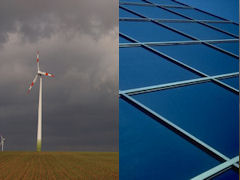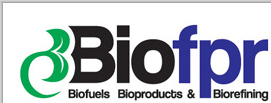Features
Bacteria eat electricity and convert it into biofuel
Date: 2015-05-27 11:36:57.0
Author: Science Nordic
 DENMARK — A group of researchers from the University of Southern Denmark are working on developing a bacteria that can eat surplus electricity from renewable energy sources such as wind turbines and solar cells and use it to convert CO2 from everything from biofuel to plastic.
DENMARK — A group of researchers from the University of Southern Denmark are working on developing a bacteria that can eat surplus electricity from renewable energy sources such as wind turbines and solar cells and use it to convert CO2 from everything from biofuel to plastic.
Reminiscent of something out of science fiction, such a bacteria actually already exist, although they can only turn electricity and CO2 into methane and acetate.
The scientists intend to exploit small genetic manipulations to convert the bacteria into miniature factories which can make every thinkable kind of organic products. “Right now we’re running out of fossil fuels while at the same time we have loads of excess electricity from renewable sources and more than plenty of CO2,” says postdoc Amelia-Elena Rotaru from the Nordic Center for Earth Evolution at the University of Southern Denmark.
“So the idea is to use these unique bacteria to convert CO2 and surplus electricity into a variety of organic products. It’s a question of converting waste products into useful things in order to spare the Earth’s resources,” says Rotaru.
How bacteria eat elecricity:
Various organisms have the ability exploit electricity in their metabolism. The organisms are bacteria or bacteria-like archaea which use hydrogen as a source of energy in the same way as we use food as fuel. When the bacteria take hydrogen apart they are left with protons and electrons, which is not that different from a liquid with an electrode carrying electric current dipped into it.
These unique organisms are therefore able to live off electricity just as they can live off hydrogen.
Bacteria produce substances we can use:
It is precisely this metabolism which makes the bacteria interesting from a financial and societal point of view. At the present time, the scientists are familiar with bacteria which by means of their metabolism produce waste products such as acetate, methane, and ethanol. They may well be waste products as far as bacteria are concerned, but these products can be very useful indeed to humans – particularly if the scientists fiddle about a bit with the bacteria’s DNA so that they will make slightly different products.
They have not yet arrived at any final solution to the problem, but Rotaru’s research may be a smart way of using the surplus electricity. “It’s actually not necessary to fiddle very much with the bacteria’s DNA before they can make butanol instead of ethanol. By and large it probably won’t be too much of a problem to replace various genes so we can get the bacteria to produce precisely what we want. This is pretty standard with many other bacteria, and with these bacteria the potential is huge,” says Rotaru.
“Only our imagination is the limit”:
Rotaru explains that the product potential of the electricity-gobbling bacteria is infinite. If it is organic it can probably be made from these bacteria. The major target is primarily to make butanol, which is a better biofuel than e.g. ethanol. It will also constitute a research-related ’proof of concept’. At the same time, the production of biofuel in electricity eating bacteria will not require large expanses of farmland which biofuel derived from plants does. “We can, for instance, couple tanks containing bacteria to wind turbines and solar panel installations. This will mean that when nobody wants the power it can be fed straight into the tanks and start making butanol. It's a smart way to make surplus energy into something useful,” says Rotaru.
But there are other ways of exploiting the bacteria’s’ special abilities. Rotaru envisages, among other things, that the bacteria can be used to convert surplus electricity into amino acids and animal feed. The amino acid lysin, for instance, is added to pig fodder, and it would not be much of a problem to get the bacteria to produce this. Another possibility is to get the bacteria to make bioplastic. “It’s all a question of making surplus electricity into something useful, and the only limit is our imagination,” says Rotaru.
About University of Southern Denmark
The overall goal of University of Southern Denmark’s quality enhancement system is to facilitate and support the continuous improvements of our educations as stated in the university vision:
“Our students develop academic competencies and personal skills in an inspiring and innovative learning environment. Teaching is of the highest quality in terms of both academic level and pedagogical methods. Our degree programmes are revised and upgraded on an ongoing basis to reflect national and global requirements.”
The quality enhancement activities are supported by a wide range of tasks each focusing on spotting trends and development indicators and supporting the organisation with up-to-date documentation, statistical statements and accreditation of programmes. Tasks that are centrally coordinated, but carried out for and in joint efforts with faculties, departments and other university units.
For further information about University of Southern Denmark, please visit the website here
Displaying 3 keywords used to tag this article:
- enzymes
- carbon capture
- patents
